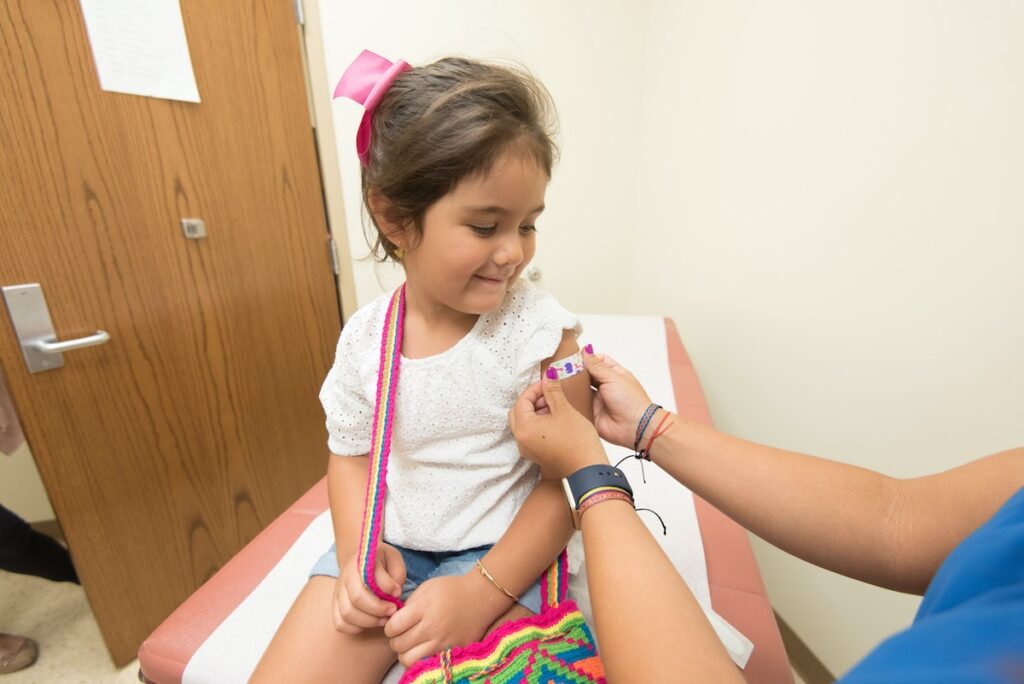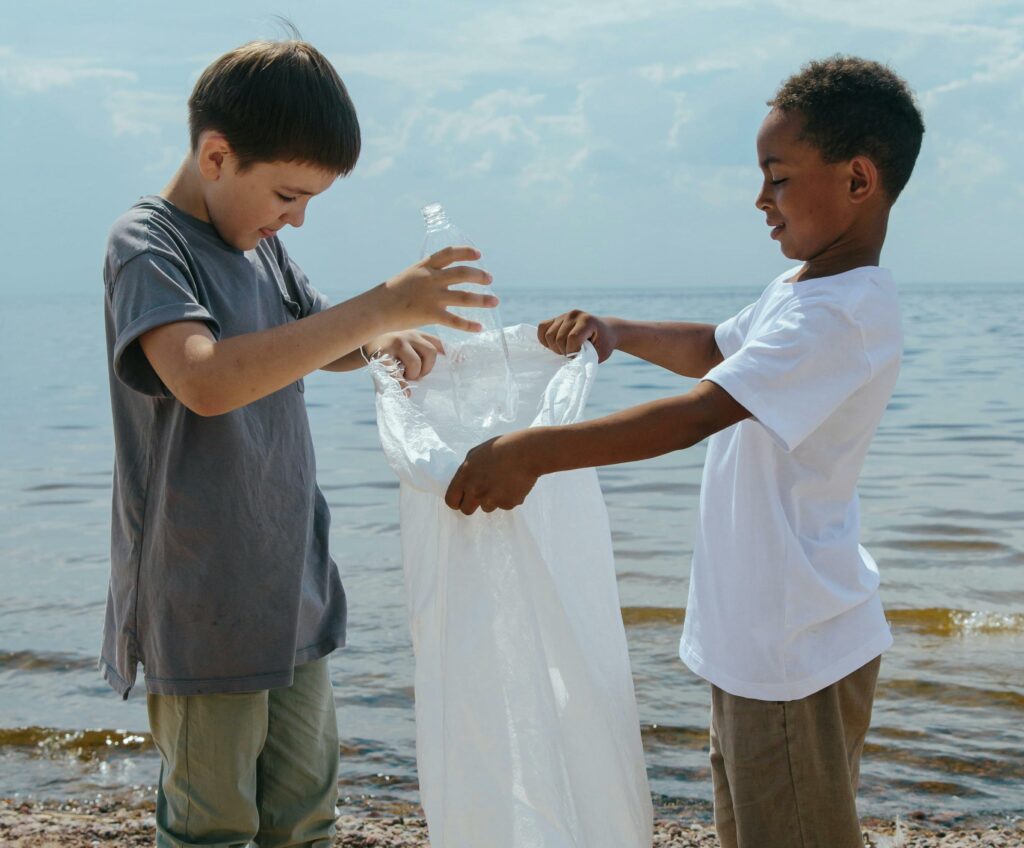The flu, or influenza, is a respiratory illness caused by a virus. It can lead to serious health conditions like bacterial infections and pneumonia, but fortunately the flu vaccine will help protect your child.
The CDC reported that 2018 was one of the deadliest flu seasons, with the flu killing over 170 children between October and May. About half of the children who died were otherwise healthy. Thousands more were hospitalized.
Pediatrics West provides the flu vaccine–and you can request an appointment or attend one of our flu clinics in the fall. Visit our vaccine page to learn more.
Who Should Get the Flu Vaccine
As a practice we always recommend an annual flu vaccine – why? Because influenza is a highly contagious, nasty virus, and kids die every year from the flu (80% OF WHOM DID NOT RECEIVE THEIR ANNUAL FLU VACCINE). Our providers feel the best medicine for influenza is prevention of influenza virus with an annual influenza vaccination.
With a flu vaccine, we help protect your child from this serious infection and we also protect your entire family against this potentially dangerous virus (kids are often the ones to transmit the virus to you and other family members). The annual influenza vaccine helps “prime” your child’s immune system so when confronted by the flu virus their immune systems are quicker to respond and stronger in their response
The American Academy of Pediatrics (AAP) recommends that all children 6 months of age and older receive a flu vaccine each year. The influenza vaccine is especially important for:
- Young children ages 6 months to 5 years of age
- Kids with chronic medical conditions increase the risk of complications from the flu
- Children of American Indian/Alaskan Native heritage since these ethnic populations have a higher risk for severe influenza illness and influenza virus infection complications
- All care providers of children with high risk conditions and children younger than five years
- All women who are pregnant, have recently delivered, or are breastfeeding during the flu season
Should My Child Get the Flu Vaccine if They Have a Health Condition
If your child has a chronic health condition, you can speak to your pediatrician about extra precautions that you can take during the flu season. Examples of a chronic health condition include an immune system problem; heart, lung or kidney disease; diabetes; some blood diseases; and malignancy. If your child has any of these conditions and shows flu-like symptoms, call Pediatrics West right away.
How the Flu Spreads and How to Prevent It
The flu season usually starts in the fall and ends in the spring. The flu virus spreads easily through the air when someone infected coughs or sneezes and the virus can be inhaled. It also can be passed through touching contaminated surfaces, such as toys or door knobs and then touching your mouth, nose, or eyes.
In addition to the vaccine, your family also can take some additional steps to protect themselves, including:
- Wash your hands frequently
- Sanitize toys
- Teach kids to cover their mouth with their elbow when they cough
- Keep kids at home from school and daycare when they show flu symptoms
How Do I Know If My Child Has the Flu
Flu symptoms include a sudden fever (usually above 101 degrees Fahrenheit), chills and shakes, headache and body aches, sore throat, a dry cough, a runny nose, and sometimes vomiting or diarrhea.
How Does the Flu Vaccine Relate to COVID?
What is the difference between COVID and the flu?
They both cause similar symptoms and it will be difficult to tell the difference between the two viruses. Similar symptoms between the two viruses are – Fever/chills, Cough, Shortness of breath, difficulty breathing, Extreme tiredness, muscle or body aches, Headache, Stuffy, runny nose & Vomiting and diarrhea
Can my child get the flu and COVID at the same time?
Yes, but the chances will be greatly reduced if your child has received their annual flu vaccine.
My child wears a mask at school and other activities, can they still get the flu?
THANK YOU, for doing your best to wear a mask at all time when outside of your home this will reduce, but not eliminate, their risk of getting respiratory infections, including flu and COVID. The best way for your child to avoid both viruses is to:
- wear a mask
- social distance – be greater than 6 feet away from others
- get his/her annual flu shot
- wash your hands often and for at least 20 seconds each & every time
Where can I learn more about COVID?
Click here to visit our COVID Page.


